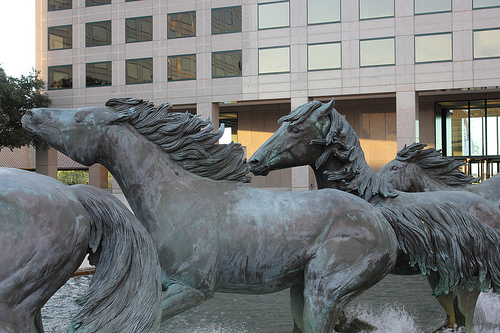Published on Friday, January 31, 2014 by Common Dreams
‘We wouldn’t throw rubbish on world heritage sites like the Grand Canyon or the Vatican City, so why would we dump on the reef?’
The Great Barrier Reef Marine Park could now become the dumping site for three million cubic meters of mud and ocean sediment drudged up in order to expand the world’s biggest coal port, following official approval of the project by Australia’s Great Barrier Reef Marine Park Authority on Friday.
The greenlight for the project at Abbott Point was met with outrage by conservationists.
“We wouldn’t throw rubbish on world heritage sites like the Grand Canyon or the Vatican City, so why would we dump on the reef?” said Greenpeace Reef Campaigner Louise Matthiesson. “Marine scientists have rung warning bells of the consequences of dredging and dumping on the reef, which makes today’s development an international embarrassment for the Queensland and federal governments.”
“The reef is being threatened from all sides. Dredging for coal and gas ports. Increased shipping frequency. Run off from agricultural developments. Increased ocean acidity and rises in sea temperatures from fossil fuel burning. The threats have got the reef surrounded.” –Graham Readfearn, The Guardian
The decision is “one more body blow for the reef which further threatens marine life, its World Heritage status and Australia’s tourism and fishing industries,” Matthiesson added.
Reuters reports:
The permit allows North Queensland Bulk Ports Corp to dump dredged material in the reef marine park to deepen Abbot Point for two terminals planned by Adani Enterprises and GVK-Hancock, which have long term plans to export 120 million tonnes a year of coal all together. […]
While the dumping spot sits within the Great Barrier Reef Marine Park, a World Heritage site, sediment will not be dumped directly on the reef itself. However, scientists warn the dumping will harm “delicate corals and seagrasses and potentially double ship traffic through the World Heritage marine park,” Reuters reports.
“Most Australians will be shocked and angry at this decision by the marine park authority and minister Hunt to allow dumping of dredge spoil in reef waters,” said Great Barrier Reef campaign director with the Australian Marine Conservation Society, Felicity Wishart. “Across the board, people expect them to defend the reef, not approve its destruction.”
Additionally, the expansion of the Abbot Point coal port, at the expense of the reef, will allow an additional 70m tonnes of coal each year to go through the port, “which is also a gateway to the world heritage-listed reef,” as the Guardian reports.
Not only will this increase industrial traffic in the pristine waters, it will “liberate millions of tonnes of coal from Queensland’s Galilee Basin,” writes Graham Readfearn in an op-ed at the Guardian on Friday.
Readfearn continues, “Most of the coal is destined for Asia and India, where it will be burned, releasing more greenhouse gases to warm the oceans and the atmosphere.”
“The reef is being threatened from all sides,” writes Readfearn. “Dredging for coal and gas ports. Increased shipping frequency. Run off from agricultural developments. Increased ocean acidity and rises in sea temperatures from fossil fuel burning. The threats have got the reef surrounded.”
As Reuters reports, the reef authority did impose conditions on the dumping permit, “including no environmental, cultural or heritage damage to areas beyond 20 km (12 miles) from the disposal site, and urged the ports corporation to consider other dump sites,” leaving it uncertain as to when the dumping will commence.
______________________



